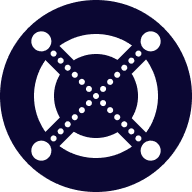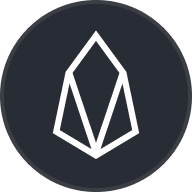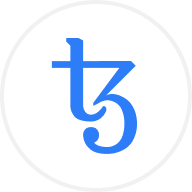Elrond is a software protocol that makes blockchain technology secure, globally scalable, and interoperable. Its sharded architecture allows for the seamless execution of smart contracts with low transaction fees and near-instantaneous speeds.
Elrond's software infrastructure comprises two unique features — Adaptive State Sharding and a Secure Proof-of-Stake (SPoS) consensus mechanism. The network also uses the Elrond WASM VM, a fast virtual machine that can run smart contracts in any programming language and compile to WebAssembly.
Adaptive sharding occurs at every level, including transaction, data, and network. This means the infrastructure can dynamically adapt to provide high throughput and speed. The sharding mechanism automatically merges or splits based on network usage or the number of validator nodes available. To improve efficiency, Elrond employs sharding in its consensus mechanism. SPoS consensus selects consensus validator nodes from shards via a random source that cannot be predicted or influenced. The validator uses a modified BLC multi-signature scheme to validate blocks.
Elrond also has an integrated development environment, which allows developers to collaborate, write, and create programs and applications for users on the platform. Users can also create their own Elrond Standard Digital Token, marketed as an improved version of ERC-20.
Elrond's native cryptocurrency, EGLD, has a variety of applications. The network's primary circulation coin is used for validator rewards, staking, transactions, and smart contract payments. It is also a necessary component of the platform's governance mechanism.
EGLD price and tokenomics
The total token supply of the project is limited to 31.42 million. Following the initial release of 20 million tokens, the network intends to gradually release eGLD over the next ten years until it reaches its maximum supply. Elrond's tokens were initially available on the Binance Chain as ERD. It was later renamed EGLD. A little more than 20 million tokens are currently in circulation.
EGLD reached its all-time high price of $490 on November 23, 2021. This increase followed the project's $1.29 billion liquidity incentive program announcement. In June 2019, the project raised $1.9 million in private investment rounds at $0.5 per token. In its initial exchange offering (IEO), it exchanged 25% of its total token supply for $3.25 million at $0.65 per token.
A fourth of the token supply was made available for public sale, with the remaining 15% reserved for private sale. 5% are reserved for future rounds, and the remaining tokens are allocated to staking rewards, grants, community, advisors, the company, and the team.
About the founders
Established in 2017 by Lucian Todea, Beniamin Mincu, and Lucian Mincu, Elrond is run by the Malta-based company Elrond Network, which is responsible for the project's growth. Before founding Elrond, CEO Mincu was Head of Product and Business at Nem Core. He also co-founded MetaChain Capital, a premier digital assets investment fund, with his brother and engineer, Mincu.
Todea is the founder and CEO of Soft32. He is also a partner in mobilPay and an angel investor in Typing DNA and Smart Bill. The network also includes a strong team of entrepreneurs, engineers, and developers with impressive experience and success track record.
Elrond highlights
Elrond announces the largest DeFi liquidity incentive program
In November 2021, Elrond announced a $1.29 billion liquidity incentive program for its Maiar DEX DeFi platform. The project used the native token, MEX, to distribute $282 million among its DEX users.
"By distributing Maiar DEX ownership to the subsequent billion users, the project sought to lay the foundation for a truly global financial system that is accessible to everyone, everywhere," said CEO Beniamin Mincu.
Runtime Verification extends commitment towards Elrond
Elrond uses the NASA-pioneered Runtime Verification framework to develop its protocol, core components, and applications. Having worked with the Runtime Verification team since its inception, Elrond announced that it had extended its commitment to the Elrond Ecosystem by becoming a non-custodial staking provider.
This will provide EGLD delegation services to the ecosystem and significantly contribute to network security and decentralization. The Runtime Verification staking pool had five active nodes as of September 16, 2022, and offered ±11% APR with a capped delegation limit.
































